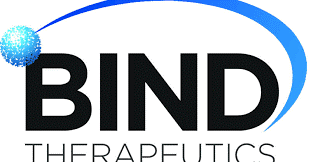Affilogic and SML Biopharm to Collaborate on Targeted mRNA-LNP Therapeutics
Affilogic and SML Biopharm, a South Korea-based biotech company specializing in mRNA-based therapeutics, have signed a memorandum of understanding (MOU) to collaborate on the development of next-generation targeted drugs using mRNA-LNP (lipid nanoparticle) technology. The agreement aims to integrate Nanofitins with SML Biopharm’s mRNA-LNP platform.

Iconovo to present positive data from a feasibility study on Nanofitins® in ICOone®
Iconovo AB (publ), which develops complete inhalation products for a global market, and Affilogic (Nantes, France) today announce that Iconovo will present positive results from a feasibility study with a Nanofitin®-based biologic drug against respiratory virus using ICOone®. The study is a part of the previously communicated feasibility agreement between the companies, aimed at developing a new treatment for lung diseases. The study results will be presented at Respiratory Drug Delivery (RDD®) 2024, which takes place in Tucson, Arizona, on May 5-9, 2024.

Affilogic and Apellis expand R&D collaboration to develop targeted complement therapies for delivery into the brain.
WALTHAM, Mass. and NANTES, France, June 22, 2022 (GLOBE NEWSWIRE) — Apellis Pharmaceuticals, Inc. (Nasdaq: APLS) and Affilogic today announced that the companies have expanded their research and development (R&D) collaboration, which was initially formed in 2018, to include the development of Nanofitins® targeting the transferrin receptor (TfR), which enables drugs to be transported across the blood brain barrier and into the central nervous system. TfR-specific Nanofitins, also known as brain shuttles, are designed to be combined with other treatment modalities including peptides, small molecules, and antibodies.

Affilogic and Samabriva entered into an Option and License Agreement to develop Nanofitin®-conjugated biotherapeutics to treat Lysosomal Storage Disorders
Nantes and Amiens, France, September 2018
Affilogic and Samabriva jointly announced that they recently entered into an Option and License Agreement to develop biotherapeutics for the treatment of patients with Lysosomal Storage Disorders. Samabriva will use Affilogic’s proprietary Nanofitins® technology to develop new therapies to address strong unmet needs in these patients such as the associated neurological damages.
In the framework of a research collaboration initiated in 2016, Samabriva will pursue the evaluation of Nanofitin® candidates selected by Affilogic from their proprietary libraries in combination with lysosomal enzymes. The partners will combine research efforts to optimize such Nanofitin®- conjugated biotherapeutics in order to satisfy unmet medical needs in the treatment of patients with Lysosomal Storage Disorders.
Affilogic announces collaboration with Takeda
Nantes, France, September 2016
Affilogic and Takeda will validate and optimize Nanofitins® to deliver biotherapeutic candidates into the brain to address neurological disorders.
“Takeda is a partner of choice for Affilogic to significantly expand the number of research programs relying on our Nanofitins® platform advancing into clinical trials” said Olivier Kitten, Chief Executive Officer of Affilogic.”
Affilogic announces collaboration with Sanofi
Nantes, France, June 2016
Affilogic enters into a Research Collaboration and Licensing agreement with Sanofi on Nanofitin®-conjugated biotherapeutics.
“We’re very proud to announce this collaboration with Sanofi. This is an important step forward to demonstrate the potency of our Nanofitin® platform with a leading pharmaceutical company.” said Olivier KITTEN, Chief Executive Officer of Affilogic. “With Sanofi, Affilogic has found an ideal partner to raise value to our technology and generate Nanofitin®-conjugate drugs.”
Affilogic announces collaboration with BIND Therapeutics
Nantes, France, May 2016
Affilogic will provide BIND with access to Nanofitins® that are keys modulators of anti-tumor immunity.
“We are excited about our collaboration with BIND Therapeutics and believe our Nanofitin® targeting ligands can play an important role in BIND’s innovative medicine strategy,” said Olivier Kitten, chief executive officer, AFFILOGIC. “BIND’s ACCURINS® platform has proven very effective at encapsulating and controlling the release kinetics of a wide variety of therapeutic payloads. When combined with our ability to specifically tailor Nanofitins to target important immune-oncology checkpoints, we believe this collaboration could lead to the discovery and development of truly innovative therapeutics.”




